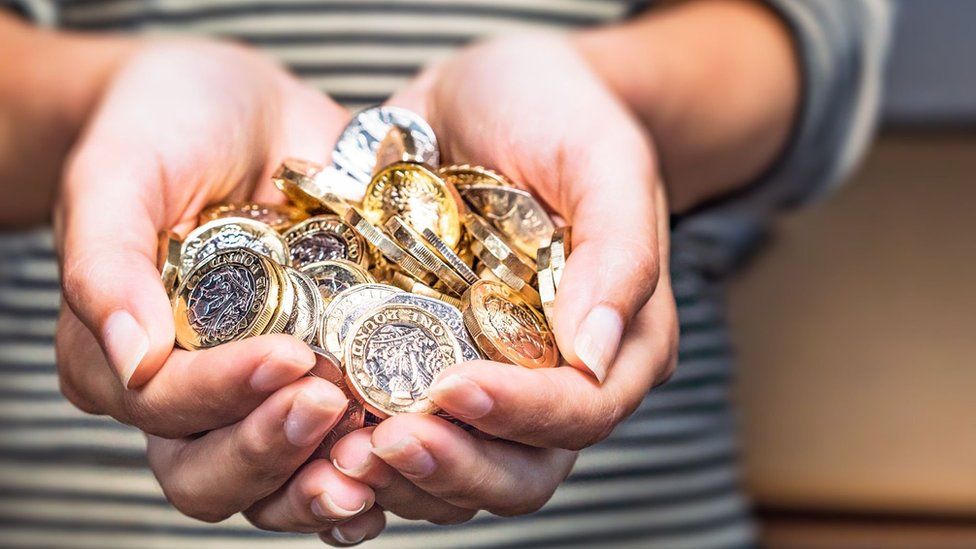ARTICLE AD BOX
 Image source, Getty Images
Image source, Getty Images
The UK government faces a gap between how much it raises in taxes and what it plans to spend.
To bridge this gap it needs to borrow money.
Why does the government have to borrow?
The government gets most of its income from taxes - for example, workers pay income tax, everyone pays VAT on certain goods, and companies pay tax on their profits.
It could, in theory, cover all of its spending from taxes - and in some years that happens.
But if it cannot do that, it needs to either raise taxes or cut spending, both of which are generally unpopular.
Higher taxes also mean people have less money to spend, so businesses make less profit, which can be bad for jobs and wages. Lower profits also mean they pay less tax too.
So governments often choose to borrow to boost the economy if it looks like it might be at risk of slowing down.
Governments also borrow to fund major long-term projects such as new railways and roads, which it also hopes will help the economy to grow.
Image source, Getty Images
Image caption,Governments borrow to fund "day-to-day" spending, as well as long-term infrastructure projects like Crossrail
How does the government borrow money?
The government borrows money by selling financial products called bonds.
A bond is a promise to pay money in the future. Most require the borrower to make regular interest payments in the meantime.
UK government bonds - known as "gilts" - are normally seen as very safe, with little risk the money will not be repaid.
Gilts are mainly bought by financial institutions in the UK and abroad, such as pension funds, investment funds, banks and insurance companies.
The Bank of England has also bought trillions of pounds' worth of government bonds in the past to support the economy, through a process called "quantitative easing".
For example, in response to the financial turmoil caused by the government's mini-budget in September, the Bank bought gilts at an "urgent pace" to help restore what it called "orderly market conditions".
However, since then it has resumed its previous plan to sell off some of the bonds it holds.
Does it matter if governments borrow more?
Yes - though opinions differ about how much.
However, figures for the financial year to date show that - in the eight months to November - the government borrowed £105.4bn - £7bn less than in the same period of 2021.
The total amount the government owes is called the national debt. It is currently £2.47 trillion.
Some economists fear the government is borrowing too much, at too great a cost.
Others argue extra borrowing helps the economy grow faster - generating more tax revenue in the long run.
However, the larger the national debt gets, the more interest the government has to pay on the money it has borrowed.
The interest on government debt in November 2022 rose to £7.3bn, the highest figure since 1997.
"Since mid-2021, the cost of servicing central government debt has increased considerably," the Office for National Statistics (ONS) said.
The government is expected to spend more than £100bn in 2022 and 2023 on debt interest - more than it spends on education.
Any money borrowed now has to be paid back one day.
That will mean that in the future there will be higher taxes and/or less money available to pay for public services.
What does a billion pounds look like... and what can it buy?
What is the government's plan for managing debt?
Governments often increase borrowing when they face unusually difficult situations, such as the coronavirus pandemic, or the current cost-of-living crisis.
This can fund extra government spending, such as helping with higher energy bills or paying some of the wages of people who could not work during Covid.
But most economists and politicians agree that debt cannot keep growing for ever, because at some point it will become impossible to keep paying the interest.
Chancellor Jeremy Hunt has blamed the "twin global emergencies of a pandemic and Putin's war in Ukraine" for driving up the government's costs.
He has said that he plans to get debt falling relative to the size of the economy "over the medium term".
What is the difference between the government deficit and debt?
The deficit is the amount by which the government's income falls short of what it spends.
Borrowing covers most of this gap, or sometimes it sells assets such as property.
In years when a government spends less than its income, it has what is known as a surplus.
Debt is the total amount of money owed by the government that has built up over years.
It rises when there is a deficit, and falls in those years when there is a surplus.

 2 years ago
24
2 years ago
24








 English (US) ·
English (US) ·